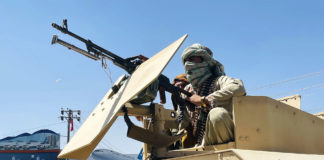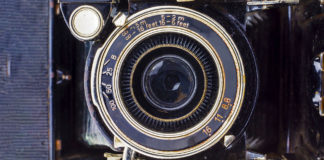How did Jesus view the Scriptures?
Jesus had the highest regard for the Scriptures. The Gospels show that He was familiar with the content of the Scriptures, which He saw as the final authority for establishing truth, rejecting temptation, and choosing the way forward in the present and the future.
Telemedicine. How to get the most out of it
While an increasing number of family physicians and private health networks offer online consultations, it's helpful to better understand telemedicine, the opportunities it creates and its limitations.
Upheaval in Afghanistan highlights the horrors of conflict
It’s hard to know where to begin when it comes to the situation currently unfolding in Afghanistan.
I will say it again: Rejoice!
Although we experience more positive than negative elements in life, we are still more intensely and more quickly affected by the unpleasant ones. How can we protect our joy of living despite the problems that beset us?
Finding comfort in discomfort
It's been a few weeks since we moved house. After just two years in which we had managed to adapt, once again everything has changed: the environment that is closer to nature, the temperature, the housing, the placement of things in the house, the daily schedule, the children's school, the type of people we come into contact with, the type of activities, the...
Is faith reasonable?
Science and faith, as important tools in the knowledge process, are often perceived to be in a tense relationship with each other, because of the fundamentally different worldviews that characterize them. The implications for life’s big questions are obvious—and sufficient to rob someone of the comfort of indifference towards such high-stakes conclusions.
The lens you see me through
Ask any cinematographer what gets them excited, and I guarantee there’s a fair chance they’ll answer with “lenses”. Having spent many years studying film and many more practising it, I can safely say that I now understand why this is—and it’s probably the first response you’d hear from me if you asked me the same question.
About motivation, comfort and procrastination…
I accepted the challenge of writing about motivation thinking it was an easy task, after so many motivational speeches read, listened to, or given.
Why it’s important to have New Year’s resolutions
New Year’s resolutions are beneficial, according to experts at the Sacramento State University, who found that this method is 10 times more effective for successfully meeting goals over a longer period of time than the method chosen by those who decide to change certain aspects of their lives at another time of the year.
How to stick with your New Year’s resolutions
The end of a year is both a period of revising and the most favorable time for drafting wishes for the upcoming year. However, the problem arises when we realise that last year’s resolutions have remained unfulfilled in the absence of a concrete plan.
The redefinition that conquered the world
For Carl Sagan, renowned astronomer and militant atheist, God's place in the universe was certain: "The cosmos is all that is, or ever was, or ever will be." For Richard Dawkins, exponent of the "new wave" of atheism, true science is necessarily atheistic and materialistic. This paradigm dominates the scientific world today.
Is capitalism compatible with the Bible?
Many will admit that they have never thought about this question because they live the status quo without critically evaluating it.
Having the courage to be a stepparent
In the whole array of virtues that a stepparent must possess in order to succeed in raising a well-rounded child whose world has been shattered by the separation of his or her parents, courage is only mentioned in passing. Yet courage is the foundation of a construction that promises to be challenging from the outset, say those who have plunged into the role...
Staring loss in the eye | Lessons from life’s disasters
In the aftermath of Hurricane Harvey, Max Lucado wrote an article summarising the spiritual lessons we can learn from an event that the news described as a "once in a thousand year flood".
Some still believe in education
Is it worth fighting for a better world? Is it worth believing that, in a world relentlessly subject to the laws of entropy, hope, good thinking, beauty will still have the chance to develop and enrich our life horizon through education? Can tomorrow's world be better than today's, when everything we hear seems to be so catastrophic, and everything we do seems to...


























